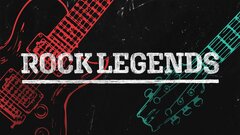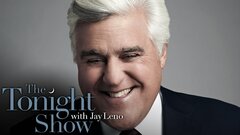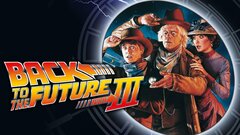Immediately identified by their '80s-era ensemble of chest-length beards, sunglasses and flashy suits, the Texas-born blues-rock trio ZZ Top backed their outlandish appearance with a string of hugely popular singles and albums, from "La Grange" to "Legs" and more, that were anchored in their swampy, sassy electrified boogie.
The roots of ZZ Top could be traced back to Houston, Texas, where Billy Gibbons - a teenaged guitar prodigy who had earned the praise of Jimi Hendrix - had formed a new act after the collapse of his psychedelic rock band, the Moving Sidewalks. A tumultuous period of lineup changes eventually led to a new band name - inspired by the soul singer Z.Z. Hill - and the addition of bassist Dusty Hill and drummer Frank Beard from another Houston group, the American Blues.
ZZ Top established their signature sound - raunchy lyrics steeped in a blend of rural and electric blues - with their debut LP, ZZ Top's First Album, but it and its follow-up, i>Rio Grande Mud, failed to develop a following. But their third release, Tres Hombres, featured the galloping "La Grange," which expanded on John Lee Hooker's enduring boogie riff; the song caught on with rock audiences, who sent the record to No. 8 on the Pop charts and the band on the road for a string of sold-out arena concerts.
Live material recorded during this tour was culled for a concert LP, Fandango!, which generated another hit single, "Tush." Somehow, ZZ Top managed to release another studio album, Tejas (1976) and embark on the massive, yearlong Worldwide Texas tour, which found the band performing on a Texas-shaped stage with a desert theme that included real livestock at some dates.
Following its completion in 1977, Gibbons, Beard and Hill took what was planned as a 90-day break that lasted about two years. When their hiatus concluded, the band had signed with Warner Bros. for a string of successful records that found them adding polish and synthesizers to their Texas grit, as evidenced by such pop-friendly singles as "Cheap Sunglasses" and the Sam and Dave cover "I Thank You."
By 1983, ZZ was relying heavily on electronic adornment of their bluesy sound, as evidenced by "Sharp Dressed Man" and "Legs," two of the four hit singles generated by their seventh and most successful album, Eliminator (1983). Its follow-up, Afterburner (1985), became their highest charting album to date, reaching No. 4 on the Billboard 200 and spawning a two-year tour in support.
After reissuing the majority of their back catalog in a variety of formats, ZZ Top dialed back the keyboards for their 10th album, Recycler. The old-is-new approach did not find as much favor with the MTV crowd that had boosted their '80s output to the top of the charts, but a move to RCA found Gibbons, Hill and Beard in fine form for a quartet of well-received, blues-driven records until they departed the label in 2003.
The next decade would find the band again reissuing their back catalog in its original mixes and playing live to enthusiastic audiences while also earning a place in the Rock and Roll Hall of Fame's class of 2004. The band returned to the studio in to record La Futura (2012) with Rick Rubin, which reached No. 6 on the Billboard albums chart.
The band premiered its 2014 single, "Flyin' High" on the International Space Station. Although the band continued touring, that was the final release by the original trio. Bassist Dusty Hill's death at the age of 72 was announced by his bandmates on July 28, 2021. The band had played some gigs earlier that earlier without Hill in the lineup.






























